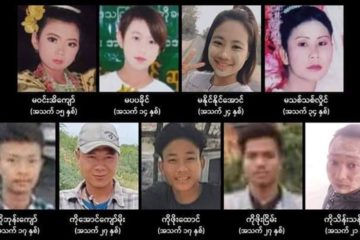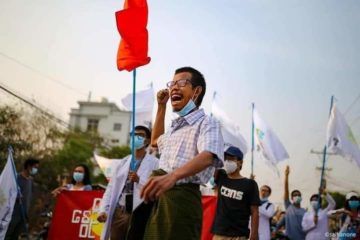
After taking power in 1958 and then again in 1962 with a military coup, General Ne Win adopted the “Burmese way to Socialism”, an ideology meant to reduce foreign influence on the country, while increasing the role of the Burmese in army in politics and economy. This policy turned Burma, one of the most advanced countries in Asia, into one of the poorest countries in the world. The nation fell into a deep economic crisis that culminated in the 1987 when the Junta, declared certain circulated denominations of currency invalid. Similar measures were adopted in 1964 and 1985, when the Junta promised to partially exchange the demonetized bills. According to the regime, the goal was to target the then thriving black market by forcing black marketeers to disclose their activity. Surprisingly, in 1987 the government declared the bulk of its currency worthless with no prior notice. Citizens had no time to change their notes and lost most of their savings overnight.
This led to nationwide protests calling for a new democratic government, that forced general Ne Win to finally resign on July 23rd. During his last speech as head of State, he famously declared: “When the army shoots, it shoots to kill.” While promising multi-party elections, he appointed general Sein Lwin as his successor, but he kept leading the regime from behind the scenes. Protests did not stop and peaked on August 8th, a date chosen by protesters for its numerological significance. The Burmese military responded to mass protests with brutal violence, shooting unarmed civilians and killing thousands of them (over 10,000 according to some estimates).
During these weeks a new leader emerged in the pro-democratic movement: Daw Aung San Suu Kyi, daughter of national hero General Aung San and future Peace Nobel Prize.
Despite promises of new elections, in september the Burmese army retook power with a military coup. Protests ended when General Saw Maung became president, establishing the State Law and Order Restoration Council (SLORC), and imposing the martial law. He remained in charge until 1992, when General Than Shwe took his place. Than Shwe’s regime lasted until 2011, year in which the Myanmar’s “transition to democracy” started, only to be interrupted by General Min Aung Hlaing’s coup in February 2021.
From 1958 to today, Myanmar’s history has been marked by war crimes against ethnic minorities, crimes against humanity and the Rohingya genocide, all perpetrated by the Burmese army. The Tatmadaw’s violence resulted in ten of thousands deaths and millions refugees over 7 decades.
Protesters in 1988 asked for democracy, something they had never experienced in their life. In 2021, most Myanmar people have experienced at least a decade of quasi-democracy, and will surely not give up their freedom.
We will never forget the thousands of victims who died during all of these years of military rule.
The 2021 Spring Revolutions will end what the 1988 Uprising started.
This will be the last generation to live under the regime. Justice will be served soon.
The regime must fall
We will win



0 Comments